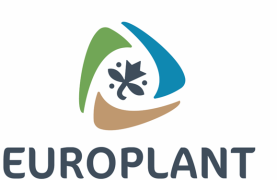Abstract
The genetic diversity of crop wild relatives is a rich source of valuable genes for plant breeding. Potato wild relatives are an important potential source for breeding programmes focused on heat resistance due to their wider adaptability to different climatic conditions. Wild potato accessions from Embrapa (Brazilian Agricultural Research Corporation) Potato Genebank were assessed and compared to dihaploids and tetraploid cultivated genotypes by measuring tuber yield-related traits and then by analysing through mixed models using the restricted maximum likelihood (REML)/best linear unbiased predicted (BLUP) procedure under heat stress. So, the present study aimed to select the most productive wild potato genotypes under two ranges of temperatures by investigating adaptability and stability of parameters through mixed modelling. Twenty-one genotypes comprising 17 wild potatoes (thirteen diploid Solanum chacoense, one triploid S. chacoense and two diploid S. commersonii), four dihaploid S. tuberosum and one tetraploid commercial cultivar of S. tuberosum (BRSIPR Bel) were evaluated under favourable crop temperature and heat stress conditions using a randomised complete block design. Significant differences were observed for the effects of genotypes and the G × E interaction. Broad sense heritability ranged from 0.24 to 0.59. Genotypic variance was the largest component of phenotypic variance, followed by environmental variance and interaction variance. We observed the highest genotypic correlation by dry matter content. Accuracy of selecting wild genotypes was high for all traits. The genotypes BGB088 (dihaploid S. tuberosum) and BGB113 (diploid S. chacoense) performed as the best ones in most of the studied traits under heat stress. These genotypes show better stability (HMGV), adaptability (RPGV and RPGV*GM), and stability and adaptability of genetic values (HMRPGV and HMRPGV*GM) under high temperature by mixed model methodologies. Conversely, BGB009 and BGB045 (diploid S. commersonii) and BGB086 (triploid S. chacoense) showed consistence in ranking among the ones last for genotypic values for all methodologies. Thus, we concluded that BGB088 and BGB113 are promising genotypes of interest to further studies for providing higher tuber yield under heat stress or non-favourable potato crop environmental conditions. These genotypes should be further assessed in efforts to evaluate the crossability and proceed introgression essays towards broadening the genetic basis of potato crop available for breeding to achieve more resilient cultivars under abiotic stress conditions.















